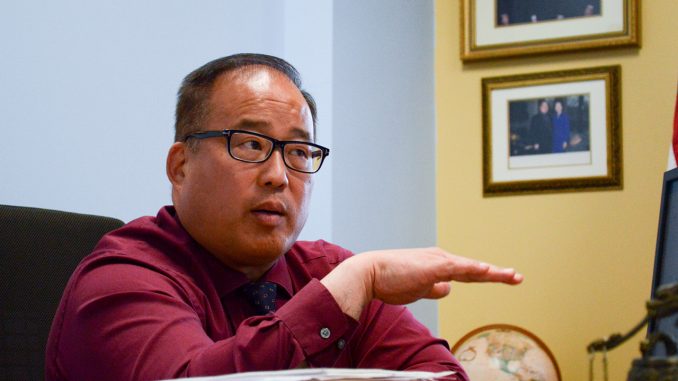
David Oh, Philadelphia City Councilman At-Large, is considering revising a bill that would provide tax relief to college graduates with $35,000 or more in debt after it failed to pass through the finance committee on Oct. 8.
The bill, proposed by Oh, would allow Philadelphia residents to write off $1,500 from their taxes each year within five years of graduation from a post-secondary institution.
Outgoing Councilwoman Jannie Blackwell, who represents the third district, and councilwoman Cindy Bass, who represents the eighth district, voted for the bill, he said.
Oh, a Republican and minority whip, said one of the purposes of the bill is to attract college graduates and businesses to the city.
“We can’t get investment and employers to come and stay in our city because of our workforce profile,” Oh said. “It’s not about people with master’s degrees. …It’s about people at the entry-level, mid-level areas, the workforce itself.”
Just 11.2 percent of Philadelphia residents over 25 have a graduate or professional degree, according to a 2017 United States Census Bureau report, while 38 percent have either some college, an associate’s degree or a bachelor’s degree.
Councilmembers said the bill was expensive and restrictive, Oh said. The city would love $52 million in tax revenue, he added.
“They’re saying two opposite things,” Oh said.
Several councilmembers who voted against the bill, along with Council President Darrell Clarke, whose district encompasses Main Campus, could not be reached for comment.
Douglass Webber, an economics professor who testified at an Oct. 8 hearing, said he opposes the bill because it benefits higher-earning workers.
A resident would have to make at least $38,000 a year to benefit from the credit, Webber said. Additionally, people who have a lot of student debt often have greater means to pay it off.
“The people who struggle the most are actually people with less than $10,000 in debt because they are disproportionately people who could not get a degree,” Webber said. “And so they don’t have good prospects in the labor market.”
The rate of student loan default for borrowers with less than $5,000 a debt is more than twice as high as the rates for people with more than $35,000 in debt, according to Urban Institute, a public policy think tank.
Webber suggested creating income brackets to determine eligibility, lowering the threshold.
“There are a number of former students who are struggling to a very significant degree,” he said. “It’s worth it if we are helping them.”


Be the first to comment